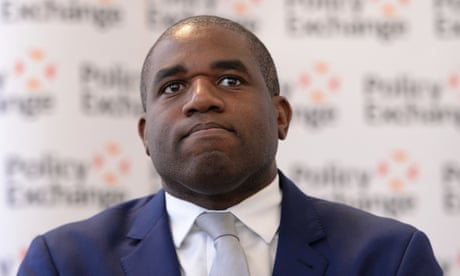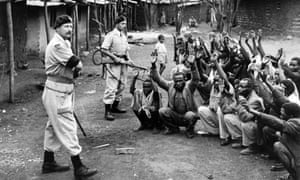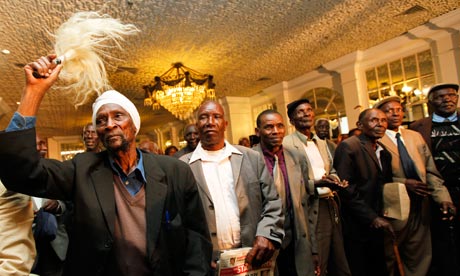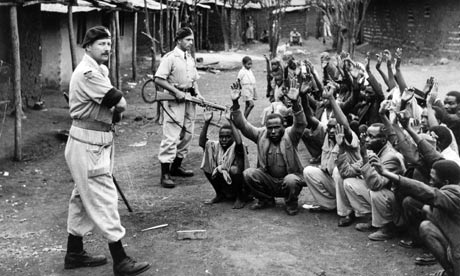Britain often claims to possess the finest justice system in the world, with a “colour blind” approach to the law. Unfortunately, this isn’t true: justice is neither colour blind, nor is it equal.
Historically, the justice system has been used to legitimise slavery, and then colonialism, from Elizabethan England onwards. In Kenya, between 1951 and 1954, during the Mau Mau uprising, more than 1,090 Kenyans were executed by the British colonial judiciary, backed by the Foreign and Commonwealth Office. This appalling figure represents the most liberal use of the death penalty in British legal history and is double the number of those executed by the French during the war of liberation in Algeria 10 years later.
In more recent times, judges have enforced the unjust “sus” laws (the informal name used for stop-and-search laws which still disproportionately affect BME people). It can be argued that racism is embedded in the DNA of the British judiciary and that it has proved uniquely resilient to education or training.
But to what extent is racism present in the system today? A study headed by David Lammy MP, published last week, makes for very disturbing reading.
In 1991, statistics regarding how differently BME and white suspects were dealt with in the criminal justice system helped to trigger race training for all full-time judges over a five-year period. Those statistics have not improved. If you are an African-Caribbean man you are 16% more likely to be remanded in custody than if you are white; you are also likely to obtain a custodial sentence of 24 months compared to your white counterpart’s 17 months. This is not because African-Caribbean men commit more serious offences than their white counterparts – these are punishments handed down for the same or similar offences. African-Caribbean men are also subject to receiving immediate custodial sentences with fewer previous convictions than their white counterparts. Our perceptions have become the reality that means 41% of all young people in detention are now from BME communities.
If you are African-Caribbean you are 16% more likely to be remanded in custody than if you are white
What is critical is that the report highlights, yet again, the fundamental racist disparities in the dispensation, administration and dissemination of justice. There is a crisis of both trust and confidence in the British judicial system among black communities. Their concerns are that it remains arbitrary, inconsistent and discriminatory. This interim report proves them right – despite its diplomatic language.
Of course, poverty, homelessness and drug addiction all play their part, as does the disproportionate influence of an institutionally racist police culture, which means black defendants are stopped and searched seven times more often than their white counterparts. This is despite falling stop-and-search figures, and falling crime generally.
A significant responsibility for this disparity of treatment still lies with an overwhelmingly white, middle class and male magistracy and judiciary, resistant to ethnic monitoring, which hides behind the fallacy that justice is “colour blind and impartial”.
We cannot expect to have a diverse judiciary and magistracy, and to recruit police officers, probation officers, prison officers and lawyers who look like us and are knowledgeable of our communities, if we are forced to operate in a system that is itself unwilling or unable to deliver justice equally to all. As Martin Luther King said, “It is not possible to be in favour of justice for some people and not to be in favour of justice for all people.”
At present, out of 161 members of the high court judiciary, there is not a single African-Caribbean judge, while only two are of Asian origin. Less than 2.5% of Oxford and Cambridge graduates (from whom 86% of high court judges are drawn) are of African-Caribbean origin. The legal pipeline and the outcome are a self-fulfilling prophecy. The race training introduced in 1991, was only introduced on the basis that high court judges were exempt, as they simply did not require it. That rather arrogant intellectual exception must now be addressed.
Lord Neuberger’s comments last night suggest that he knows judicial diversity needs tackling. I am currently suing the Ministry of Justice for race discrimination and victimisation arising out of short speech on judicial racism and human rights I gave. It was at a meeting to protest at the decision of an electoral deputy high court judge to ban the former mayor of Tower Hamlets, Lutfur Rahman, from holding public office for five years. The allegation was that I indirectly criticised a fellow judge, the first time any judge has ever faced disciplinary action for this charge.
Several months later, in November 2015, there was an attempt to suspend me, approved by several high court judges, and the Judicial Conduct Investigations Office, who threatened me with a formal suspension. This was at the same time that a fellow immigration judge of African origin had her complaint of sex and race discrimination ignored while the three white judges accused were never faced with suspension. A fellow Asian district judge still faces disciplinary sanctions for a minor complaint that at most was a competence issue, and three other BME judges are currently suing the Ministry of Justice. The treatment of BME judges by our white colleagues demonstrates a culture in which we are not accepted as equals with a fundamental right to challenge discrimination. Little wonder then that BME defendants and litigants face race discrimination in all jurisdictions.

Ethnic minorities more likely to be jailed for some crimes, report finds
Even if one achieves a “critical mass” of BME judges and magistrates, the injustice is unlikely to be eradicated if the culture of who is perceived to be the likely recidivist or the most “dangerous” offender persists. The only solution is the one resisted by the Ministry of Justice, and by most senior judges – that is monitoring each crown court and magistrates centre so that there can be proper scrutiny of individual courts to identify where the problem lies.
Allied to this must be a full acknowledgement by the Sentencing Council that sentencing and bail guidance must set out clearly the levels of disparity for each offence. Simply pretending the problem does not exist is a recipe for unconscious but appalling levels of racial bias to continue unchecked.
The training on race from 1991 to 1995 worked, as it forced judges to engage with BME mentors who challenged subconscious bias and racism as equals in a secure setting. The race awareness training practised in the 20 years since has been discredited as wholly ineffective. It is too polite, conducted infrequently and by fellow judges who themselves are part of the problem.
The judiciary is a pillar of our democracy with a historical responsibility for the racism that affects our fundamental freedoms and rights. If that is to change, it must work hard to eradicate disproportionate sentences and bail that remove the freedom and rights of people of colour. Justice cannot be the prerogative of a narrow, white middle-class elite, who believe that racism is a problem for other lesser mortals to confront.




